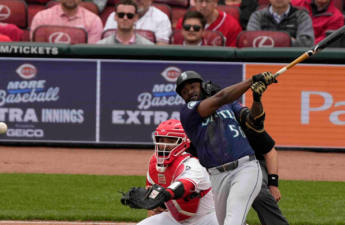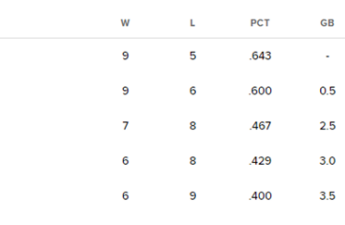
“This was an incredibly new and important idea that people on the front lines of the gay rights movement began to talk about and slowly, but surely, convinced others of the rightness of that position. And when I was ready to say what I said, I said it.”
-Hillary Clinton, in 2014, on why she still didn’t support gay marriage fully, but was coming around. She fully endorsed it in April 2015, after 36 states and just 2 months before the Supreme Court legalized it in all 50 states
“Look, I don’t believe you change hearts. I believe you change laws, you change allocation of resources, you change the way systems operate.”
-Hillary Clinton, rebuking Black Lives Matter with her theory of “change”
I don’t consider myself a liberal. The term has been corrupted and co-opted by neo-liberalism, a movement really sparked in the US by Bill Clinton. It’s become a term that’s associated with milktoasty right-of-center policies masquerading as the new left. It’s waving the banner of corporatism, of free trade, of incremental change so small and slow that it looks like it’s going backwards. The very few actual Clinton supporters I know (not just begrudging and thankfully dwindling plurality of people who think she’s the only chance for “us” to “win”) tout the idea that her policies are actually very liberal. But liberalism is exactly the problem. Liberalism is about compromise, about (at best) the first six years of the Obama administration, about all eight of the Clinton years that brought us DOMA and NAFTA and bombing campaigns and a bunch of other policies that, before Reagan, we would associate with Republicans.
Hillary Clinton says her heart was changed, incredibly slowly, slower than the state of Iowa, by the gay rights movement. She was just two months ahead of the Supreme Court on this issue, around the time when they were hearing oral arguments, meaning that if Clinton herself were the decisive vote on the Court, the outcome of June’s decision would be in greater peril than it actually was. So much for voting for Hillary to protect the outcome of decisions in the Court.
Hillary Clinton doesn’t believe in changing hearts, though. Maybe because the first quote up top there is garbage. She came out for gay marriage at the last palatable second for a Democrat, largely because she probably still didn’t believe in it. I would contend that Clinton doesn’t believe in changing hearts because she doesn’t have a heart to change. There’s no idealism there. There’s no belief structure. There’s just a series of calculations about how things will be perceived, a mechanistic series of trade-offs en route to what she has seen for a long time as her inevitable just dessert. If this sounds familiar, it’s because this is pretty much the exact belief structure of Bushes the younger, both the successful two-term W and the contending-but-probably-sunk-for-now Jeb!
Here’s the problem, though, and this is coming at all those who posted on Facebook after this quote that Hillary “gets things done”. You have to believe in a change before you can fight to make it law. Hearts change before laws change. Anthony Kennedy’s opinion in Obergefell was not a deeply reasoned meditation on the exact nuances of Constitutional structure. It was a stirring plea from a heart that had been moved. If John Roberts’ dissent sympathized with the heartstrings but stuck to the legal guns, he may have had a point in doing so. “Whatever force that belief may have as a matter of moral philosophy, it has no more basis in the Constitution…” he wrote. He basically conceded that gay marriage was right, but he had found a justification in the “law” for not adopting it. Frankly, even John Roberts’ heart had been changed, but as a strict structuralist, he felt he couldn’t be swayed.
This kind of change is not what Hillary Clinton believes in. And in so doing, she offers a liberalism that guarantees stagnation. She will be even less of a change leader than Obama, who at least has found some will for actual change and chutzpah in his last two years, opening up Cuba and proffering the first sane Iranian policy in the US possibly in history. Yes, he still has his daily kill list and yes, he is still responsible for a terrible law that will make the next forty years of health-care policy even more reactionary than the forty before Obamacare (unless, that is, Trump or Sanders, both of whom believe in single-payer healthcare, get into the White House). But at least he’s found some change we can all believe in at the 11th hour.
The change Hillary believes in is to her bottom line. It’s to the self-serving reputation of the Clinton Dynasty. It’s to the ongoing entitlement of her clan as Democratic Royalty in an era when the Democrats became desperate and started moving further and further right to curry favor with corporate donors. And by resting on the laurels of liberalism, any moderate with a SuperPAC can come in and call themselves a winner to try to carry the banner of a new generation of leftists.
It’s no wonder that Bernie Sanders keeps gaining ground on this candidacy. A huge bloc of the Democratic Party are frustrated left-wingers who felt Obama was disappointingly moderate. You think those people are going to support someone who doesn’t even claim to believe in change? Who thinks Obama compromised too little? Your theory of change can’t be to move Clinton to the left in her rhetoric, because her rhetoric literally doesn’t matter. She doesn’t believe in changing hearts and minds. She believes in herself and doing whatever it takes to win. Fortunately, this year, or next year, so far, that doesn’t seem to be on pace to be a winning strategy.


